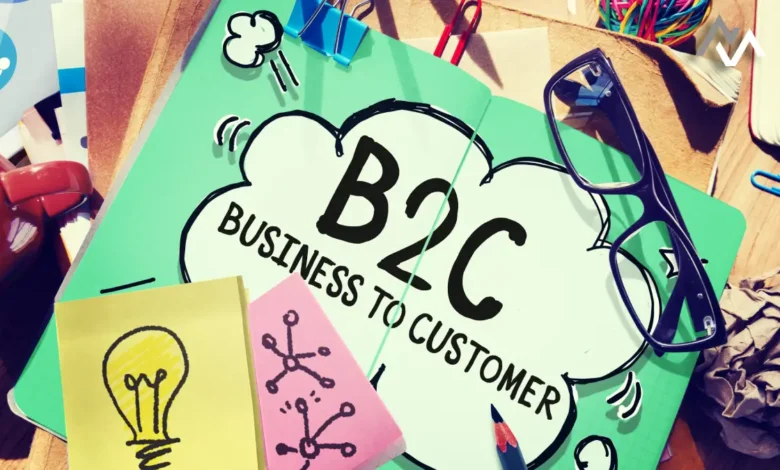Why B2B Marketing Must Embrace B2C Tactics

In the evolving landscape of B2B marketing, adopting B2C tactics is no longer just a trend—it’s a necessity. As digital transformation accelerates, B2B buyers increasingly expect personalized, engaging, and seamless experiences, similar to those they encounter as consumers. This shift in expectations is reshaping how B2B marketers engage their audiences. Here’s why B2B marketing must embrace B2C tactics and how doing so can enhance customer experiences, drive conversions, and ultimately boost revenue.
Changing Buyer Expectations in B2B
Historically, B2B marketing has been characterized by rational messaging, emphasizing facts, features, and ROI. However, as millennials and Gen Z enter decision-making roles, they bring with them expectations shaped by consumer experiences. They seek brands that resonate on a personal level and provide an intuitive digital journey. They want more than just a product; they want a brand experience. Just as B2C marketers create customer-centric, emotionally engaging campaigns, B2B marketers must now cater to these modern demands.
Incorporating B2C strategies like storytelling, brand personality, and engagement on social media can foster a stronger connection with B2B buyers. These approaches humanize the brand and build trust, making the buying process smoother and more appealing.
Personalization as a Key to Success
One of the most impactful B2C tactics that B2B marketers can adopt is personalization. Personalization is not just a “nice-to-have” anymore; it’s essential. Today’s B2B buyers expect brands to understand their unique needs and preferences, and they respond positively to targeted, relevant messaging. Using data-driven insights to personalize email campaigns, web content, and even product recommendations can significantly improve engagement and conversion rates.
Personalization goes beyond just addressing a contact by their name. It involves delivering relevant content based on their industry, company size, and role, as well as their behavior and interaction history. Leveraging CRM systems, AI-driven tools, and advanced analytics allows B2B marketers to create a customized experience, thereby enhancing customer satisfaction and brand loyalty.
Storytelling and Emotional Connection
B2C brands have long harnessed the power of storytelling to create an emotional connection with customers, and B2B brands should consider doing the same. When B2B marketing focuses on storytelling, it moves beyond dry facts and figures and dives into the heart of how products and services make a difference. Storytelling makes brands memorable, allowing buyers to connect with the brand’s mission and vision.
For example, rather than simply promoting the technical specifications of a product, a B2B brand can share a story about how the product helped a customer overcome a specific challenge. This approach fosters empathy, makes the brand relatable, and resonates with buyers who see their struggles and aspirations reflected in the narrative. By adding a human touch, B2B brands can deepen their connection with clients and encourage brand loyalty.
Leveraging Social Media and Influencers
Another valuable B2C tactic that B2B marketers can adopt is an active presence on social media platforms. LinkedIn has long been a staple for B2B engagement, but platforms like Twitter, Instagram, and even TikTok are increasingly relevant for reaching decision-makers. B2B brands can use these platforms to showcase their expertise, share success stories, and even highlight behind-the-scenes content, which helps humanize the brand.
Furthermore, the use of influencers in B2B is growing. Partnering with industry experts and thought leaders can expand a brand’s reach and credibility. When these influencers endorse or collaborate with a brand, it enhances the brand’s image and builds trust within the industry. As with B2C, the key is to choose influencers whose values and audience align with the brand’s goals.
Focusing on the Buyer’s Journey
B2C marketers prioritize the customer journey, ensuring it’s seamless and engaging from start to finish. B2B marketers are increasingly recognizing the importance of focusing on the entire buyer’s journey, from initial awareness to post-purchase engagement. Ensuring a smooth transition across stages, providing educational content, and offering support post-sale are vital to maintaining strong relationships and encouraging repeat business.
Utilizing analytics to understand where prospects are in the funnel and delivering relevant content can make the buyer’s journey more effective. Whether it’s a demo video, a case study, or a white paper, providing the right content at the right time not only informs buyers but also builds trust.
Data-Driven Decisions and Flexibility
B2C brands often use data to inform their strategies, pivot quickly, and respond to changing consumer behavior. B2B marketers are also increasingly turning to data analytics to make informed decisions. From tracking website behavior to analyzing engagement metrics, data helps B2B marketers understand what’s working and where adjustments are needed.
In today’s fast-paced market, flexibility is crucial. The ability to adapt quickly to new trends, competitor moves, and buyer preferences ensures a brand stays relevant and competitive.
Final Thoughts
The lines between B2B and B2C marketing are blurring, as B2B buyers expect the same level of personalization, engagement, and emotional connection they experience in their personal lives. By adopting B2C tactics—such as personalization, storytelling, social media engagement, and data-driven insights—B2B marketers can meet these evolving expectations, deepen client relationships, and ultimately drive better business outcomes. Embracing these strategies is not just about staying relevant; it’s about leading in a customer-centric market.




